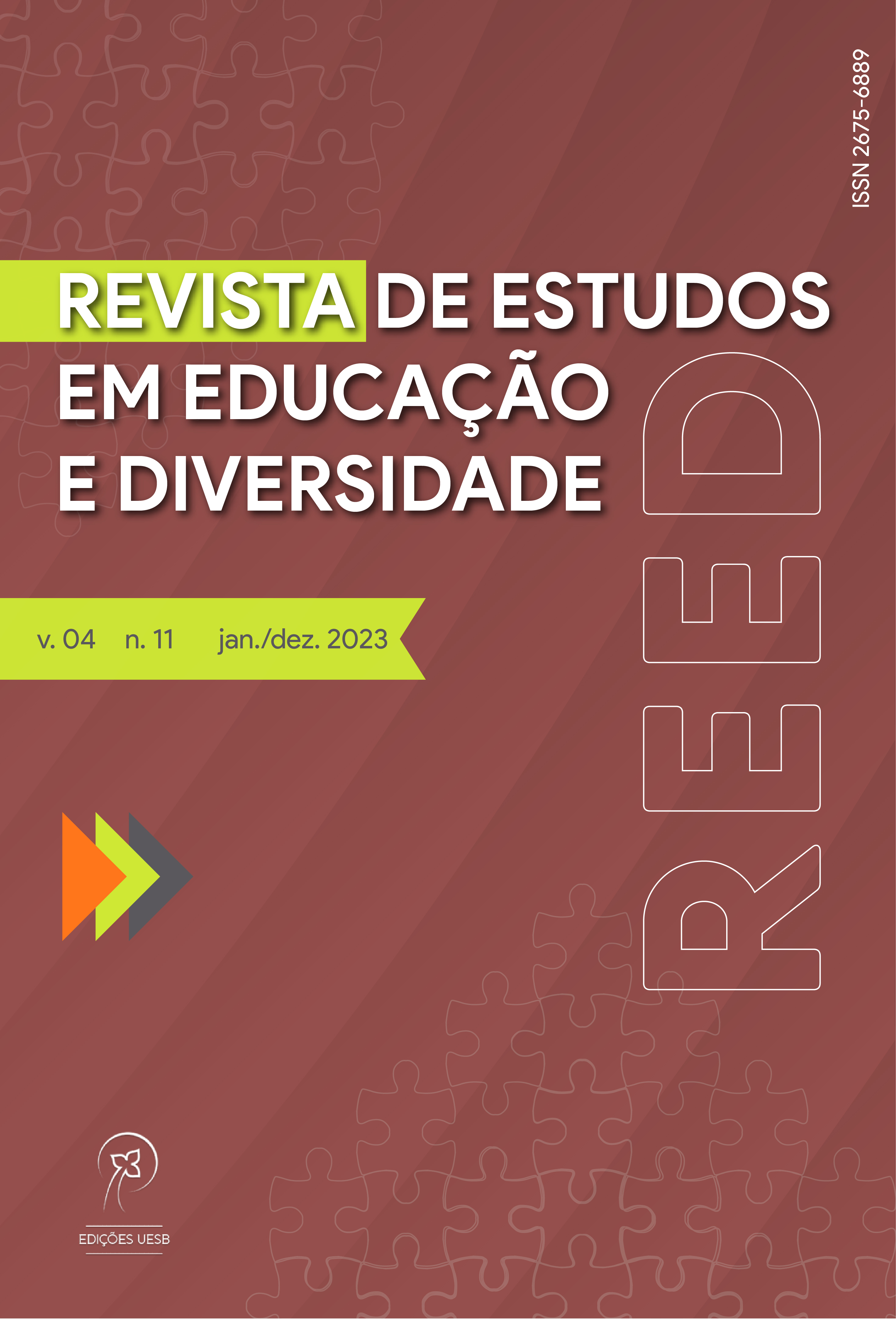The substance under abstract and concretion in chemistry teaching
DOI:
https://doi.org/10.22481/reed.v4i11.14054Keywords:
chemistry teaching, substance, mereologyAbstract
The purpose of this work is to investigate the meanings of the term "substance" in the field of Chemistry education and Philosophy, from the perspective of hylomorphism, considering the processes of abstraction and concretion of study objects in the pedagogical process. In this article, a bibliographical survey is conducted based on the perspectives of Silva and Amaral (2013), Aristotle (2002), Mário Ferreira dos Santos (1955), Newton da Costa (2018), and others, in order to discuss the senses and meanings underlying the term "substance" in the aforementioned knowledge areas. It is observed that, in the hylomorphic sense, substance conveys a broader meaning, also encompassing the scientific notion of the term. The use of the latter in Chemistry classes tends to stimulate the mereological perspective of physical reductionism. Therefore, the distance between these two fields of knowledge may have consequences for the processes of abstraction and concretion for students, especially by presupposing, even implicitly, a certain ontological cosmovision in linguistic expression.
Downloads
References
AQUINO, Tomás de. Suma teológica. 2. ed. São Paulo: Loyola, 2005. 894 p.
ARISTÓTELES. Metafísica. 5. ed. São Paulo: Edições Loyola, 2002. 695 p.
ARISTÓTELES. Sobre a geração e a corrupção. 1. ed. Lisboa: Imprensa Nacional - Casa da Moeda, 2009. 176 p.
CALDERÓN, Padre Álvaro. La naturaleza y sus causas: tomo II. 1. ed. Buenos Aires: Ediciones Corredentora, 2016. 457 p.
COSTA, Newton Carneiro Affonso. O conhecimento científico. 3. ed. São Paulo: Discurso Editorial, 2018, 308 p.
EISBERG, R.; RESNICK, R. Física Quântica: Átomos, Moléculas, Sólidos, Núcleos e Partículas. Rio de Janeiro: Campus, 1979. 928 p.
HENDRY, Robin Findlay; NEEDHAM, Paul. Le Poidevin on the reduction of chemistry. The British journal for the philosophy of science. v. 58, n. 2, p. 339-353, 2007. Disponível: https://www.jstor.org/stable/30115231. Acesso em: 10 de jun. de 2023.
IUPAC. Compendium of chemical terminology (gold book). Version 2.3.3, 2014-02-24. Disponível em: https://goldbook.iupac. org/html/C/C01039.html. Acesso em: 13 de jun. de 2023.
MORTIMER, E. F. Para além das fronteiras da química: relações entre filosofia, psicologia e ensino de química. Química Nova, São Paulo, v. 20, n. 2, 200-207, 1997. Disponível em: https://www.scielo.br/j/qn/a/6Jknv9tHN9XzQBKLzVdkV9b/?format=pdf&lang=pt. Acesso em: 14 de jun. de 2023.
NUNES, Rhamon de Oliveira. Mereologia e o Problema da Composição. In: IMAGUIRE, Guido; CID, Rodrigo. Problema de metafísica analítica. 1. ed. Pelotas: Editora UFPel, 2020, p. 442.
PÉREZ-ESTÉVEZ, Antonio. Materia y generación en Tomás de Aquino. Revista de filosofía, v. 14, n. 26, p. 39-60, 1997. Disponível em: https://produccioncientificaluz.org/index.php/filosofia/article/view/17935/17924. Acesso em: 8 de jun. de 2023.
SANTOS, Mário Ferreira dos. Filosofia e cosmovisão. 2. ed. São Paulo: Logos, 1955. 268 p.
SANTOS, Mário Ferreira dos. Tratado de simbólica. 2. ed. São Paulo: Logos, 1959. 256 p.
SCERRI, Eric Robert. What is an element? What is the periodic table? And what does quantum mechanics contribute to the question?. Foundations of Chemistry. v. 14, p. 69-81, 2012. Disponível em: https://link.springer.com/article/10.1007/s10698-011-9124-y. Acesso em: 13 de jun. de 2023.
SILVA, João Roberto Ratis Tenório da. Diversos modos de pensar o conceito de substância química na história da ciência e sua visão relacional. Ciência & Educação (Bauru), v. 23, p. 707-722, 2017. Disponível em: https://www.scielo.br/j/ciedu/a/yDqGVxRRWxvMzHdq6HS9Ztc/?format=pdf. Acesso em: 10 de ago. de 2023.
SILVA, João Roberto Ratis Tenório da; AMARAL, Edenia Maria Ribeiro do. Proposta de um perfil conceitual para substância. Revista Brasileira de Pesquisa em Educação em Ciências, v. 13, n. 3, p. 53-72, 2013. Disponível em: https://periodicos.ufmg.br/index.php/rbpec/article/view/4271/2836. Acesso em: 24 de ago 2023.
Downloads
Published
How to Cite
Issue
Section
License
Copyright (c) 2023 Revista de Estudos em Educação e Diversidade - REED

This work is licensed under a Creative Commons Attribution 4.0 International License.
You are free to:
Share - copy and redistribute the material in any medium or format; Adapt - remix, transform, and build from the material for any purpose, even commercially. This license is acceptable for Free Cultural Works. The licensor cannot revoke these freedoms as long as you follow the terms of the license.
Under the following terms:
Attribution - You must appropriately give credit, provide a link to the license, and indicate if any changes have been made. You may do so in any reasonable way, but not in a way that suggests that you or your use is endorsed by the licensor.
There are no additional restrictions - You cannot apply legal terms or technological measures that legally restrict others to make any use permitted by the license.






